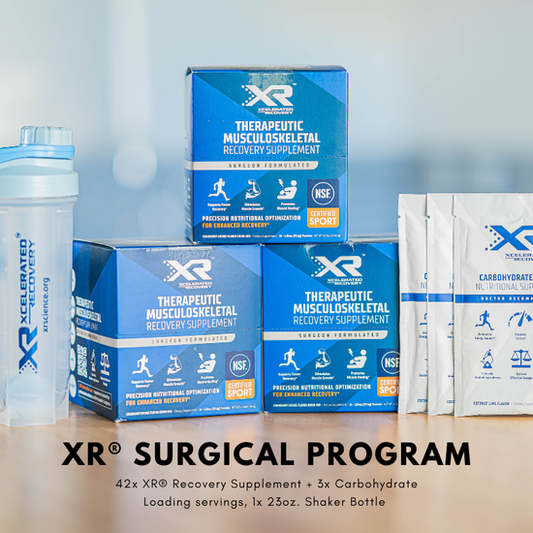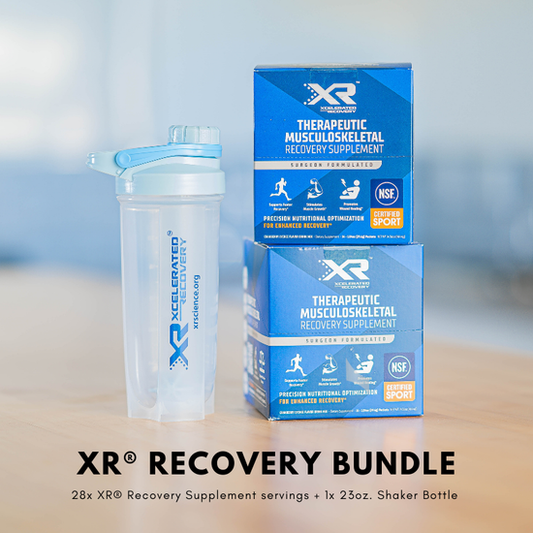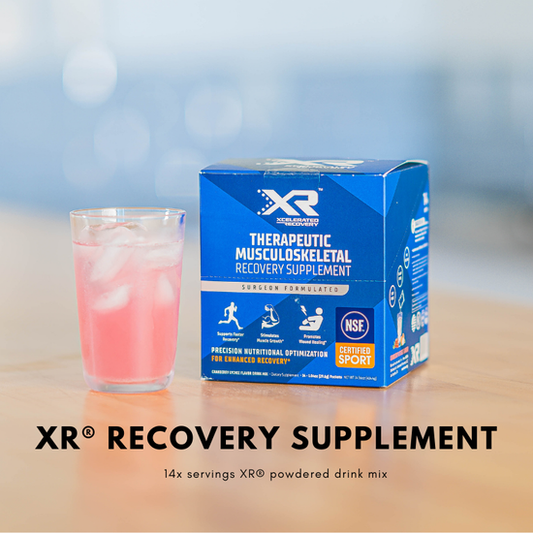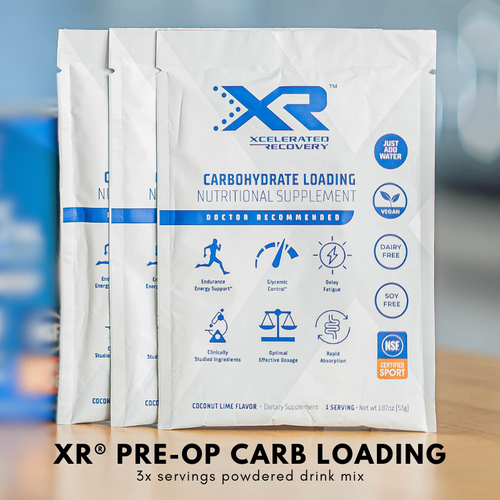
Lose the fat, keep the muscle w/ Ozempic
Share
Strategies for Muscle Preservation
As GLP-1 medications like Ozempic become increasingly used for weight loss and diabetes management, a significant concern arises: rapid weight loss may lead to muscle depletion and reduced bone density, which can have immediate health implications and contribute to the onset of sarcopenia, a condition characterized by the gradual loss of muscle mass, strength, and function, often associated with aging but exacerbated by swift weight loss.
Ozempic, as a mimic of GLP-1's effects, does promote rapid weight loss, but this can also result in unintended consequences. The substantial reduction in excess weight may lead to a significant loss of up to 30% in lean body mass, and such a decrease in muscle mass can have lasting impacts on metabolic health and physical strength, ultimately affecting the body's ability to burn calories. It's important to recognize that muscles serve a vital function beyond mobility, as they play a critical role in calorie expenditure even during periods of rest. Therefore, preserving muscle mass becomes crucial during weight loss as it helps maintain a higher metabolic caloric expenditure, aiding in achieving sustained weight reduction.
Essential amino acids (EAAs) are fundamental for muscle protein synthesis. Ensuring adequate intake becomes critical in countering potential muscle depletion induced by medications like Ozempic during rapid weight loss. Emerging studies highlight EAAs’ role in preserving muscle mass, particularly when combined with exercise. XR™, originally formulated to aid high-level athletes' recovery after surgeries, aiming for a swift return to sports, stands out due to its composition beyond mere protein content. It includes specific amino acids like leucine and HMB (β-hydroxy β-methylbutyrate), clinically demonstrated to impede muscle tissue breakdown. XR™ incorporates conditionally essential amino acids (CEAAs), promoting collagen and bone synthesis crucial for tissue repair and maintenance. This unique blend, initially designed for athlete recovery, holds similar value in addressing muscle loss seen in rapid weight reduction induced by GLP-1 medications like Ozempic.
Collective Strategies for Muscle Health
Preserving muscle during rapid weight loss requires a holistic approach that encompasses various factors:
-
Regular Exercise: Incorporating strength training and resistance exercises into your routine can support muscle preservation by stimulating muscle growth and preventing excessive muscle loss during weight loss.
-
Adequate Sleep: Quality rest is essential for muscle recovery and growth. Prioritizing sufficient and restorative sleep can contribute to maintaining muscle health.
-
Dietary Protein: Consuming an adequate amount of protein in your diet is crucial for preserving muscle mass. Protein provides the essential building blocks for muscle repair and growth.
-
Targeted Nutritional Supplementation: Implementing essential amino acids, which are crucial for supporting muscle health, becomes vital during weight loss phases to preserve valuable muscle mass. Supplements like XR™, with their unique blend of amino acids, can be beneficial in this regard.
Empowering a Collaborative Approach
Acknowledging the potential impact of rapid weight reduction on muscle health empowers individuals to take proactive steps. Collaborating with healthcare professionals and considering essential amino acid supplements, like XR™, can aid in preserving physical strength and vitality during transformative health journeys.
Preserving muscle isn’t just about looks; it’s about maintaining higher metabolic caloric expenditure and ensuring lasting success in weight loss. Understanding and addressing the implications of muscle loss during rapid weight reduction empowers individuals to safeguard their well-being effectively. By adopting a comprehensive strategy that includes exercise, rest, dietary choices, and targeted supplementation, individuals can optimize their chances of maintaining muscle health while achieving their weight loss goals.
Reference:
Maykish A, Sikalidis AK. Utilization of Hydroxyl-Methyl Butyrate, Leucine, Glutamine and Arginine Supplementation in Nutritional Management of Sarcopenia-Implications and Clinical Considerations for Type 2 Diabetes Mellitus Risk Modulation. J Pers Med. 2020 Mar 24;10(1):19. doi: 10.3390/jpm10010019. PMID: 32213854; PMCID: PMC7151606.
https://cdn.shopify.com/s/files/1/0614/6110/2817/files/jpm-10-00019.pdf?v=1721168275








